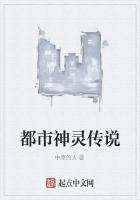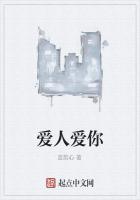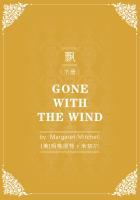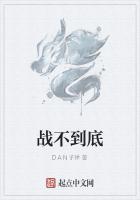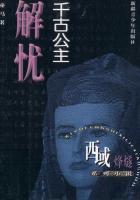March's room to look from her windows at a parade of bicyclers' clubs from the neighboring towns. The spectacle prospered through its first half-hour, with the charm which German sentiment and ingenuity, are able to lend even a bicycle parade. The wheelmen and wheelwomen filed by on machines wreathed with flowers and ribbons, and decked with streaming banners. Here and there one sat under a moving arch of blossoms, or in a bower of leaves and petals, and they were all gay with their club costumes and insignia. In the height of the display a sudden mountain shower gathered and broke upon them. They braved it till it became a drenching down-pour; then they leaped from their machines and fled to any shelter they could find, under trees and in doorways. The men used their greater agility to get the best places, and kept them; the women made no appeal for them by word or look, but took the rain in the open as if they expected nothing else.
Rose watched the scene with a silent intensity which March interpreted.
"There's your chance, Rose. Why don't you go down and rebuke those fellows?"
Rose blushed and shrank away without answer, and Mrs. March promptly attacked her husband in his behalf. "Why don't you go and rebuke them yourself?"
Well, for one thing, there isn't any conversation in my phrase-book Between an indignant American Herr and a Party of German Wheelmen who have taken Shelter from the Rain and are keeping the Wheelwomen out in the Wet." Mrs. Adding shrieked her delight, and he was flattered into going on. "For another thing, I think it's very well for you ladies to realize from an object-lesson of this sort what spoiled children of our civilization you are. It ought to make you grateful for your privileges."
"There is something in that," Mrs. Adding joyfully consented.
"Oh, there is no civilization but ours," said Mrs. March, in a burst of vindictive patriotism. "I am more and more convinced of it the longer I stay in Europe."
"Perhaps that's why we like to stay so long in Europe; it strengthens us in the conviction that America is the only civilized country in the world," said March.
The shower passed as quickly as it had gathered, and the band which it had silenced for a moment burst forth again in the music which fills the Carlsbad day from dawn till dusk. Just now, it began to play a pot pourri of American airs; at the end some unseen Americans under the trees below clapped and cheered.
"That was opportune of the band," said March. "It must have been a telepathic impulse from our patriotism in the director. But a pot pourri of American airs is like that tablet dedicating the American Park up here on the Schlossberg, which is signed by six Jews and one Irishman. The only thing in this medley that's the least characteristic or original is Dixie; and I'm glad the South has brought us back into the Union."
"You don't know one note from another, my dear," said his wife.
"I know the 'Washington Post.'"
"And don't you call that American?"
"Yes, if Sousa is an American name; I should have thought it was Portuguese."
"Now that sounds a little too much like General Triscoe's pessimism," said Mrs. March; and she added: "But whether we have any national melodies or not, we don't poke women out in the rain and keep them soaking!"
"No, we certainly don't," he assented, with such a well-studied effect of yielding to superior logic that Mrs. Adding screamed for joy.
The boy had stolen out of the room, and he said, "I hope Rose isn't acting on my suggestion?"
"I hate to have you tease him, dearest," his wife interposed.
"Oh, no," the mother said, laughing still, but with a note of tenderness in her laugh, which dropped at last to a sigh. "He's too much afraid of lese-majesty, for that. But I dare say he couldn't stand the sight.
He's queer."
"He's beautiful!" said Mrs. March.
"He's good," the mother admitted. "As good as the day's long. He's never given me a moment's trouble--but he troubles me. If you can understand!"
"Oh, I do understand!" Mrs. March returned. "By his innocence, you mean.
That is the worst of children. Their innocence breaks our hearts and makes us feel ourselves such dreadful old things."
"His innocence, yes," pursued Mrs. Adding, "and his ideals." She began to laugh again. "He may have gone off for a season of meditation and prayer over the misbehavior of these bicyclers. His mind is turning that way a good deal lately. It's only fair to tell you, Mr. March, that he seems to be giving up his notion of being an editor. You mustn't be disappointed."
"I shall be sorry," said the editor. "But now that you mention it, I think I have noticed that Rose seems rather more indifferent to periodical literature. I supposed he might simply have exhausted his questions--or my answers."
"No; it goes deeper than that. I think it's Europe that's turned his mind in the direction of reform. At any rate he thinks now he will be a reformer."
"Really! What kind of one? Not religious, I hope?"
"No. His reform has a religious basis, but its objects are social.
I don't make it out, exactly; but I shall, as soon as Rose does. He tells me everything, and sometimes I don't feel equal to it, spiritually or even intellectually."
"Don't laugh at him, Mrs. Adding!" Mrs. March entreated.
"Oh, he doesn't mind my laughing," said the mother, gayly. Rose came shyly back into the room, and she said, "Well, did you rebuke those bad bicyclers?" and she laughed again.
"They're only a custom, too, Rose,", said March, tenderly. "Like the man resting while the women worked, and the Emperor, and all the rest of it."
"Oh, yes, I know," the boy returned.
"They ride modern machines, but they live in the tenth century. That's what we're always forgetting when we come to Europe and see these barbarians enjoying all our up-to-date improvements."
There, doesn't that console you?" asked his mother, and she took him away with her, laughing back from the door. "I don't believe it does, a bit!"
"I don't believe she understands the child," said Mrs. March. "She is very light, don't you think?" I don't know, after all, whether it wouldn't be a good thing for her to marry Kenby. She is very easygoing, and she will be sure to marry somebody."
She had fallen into a tone of musing censure, and he said, "You might put these ideas to her."






